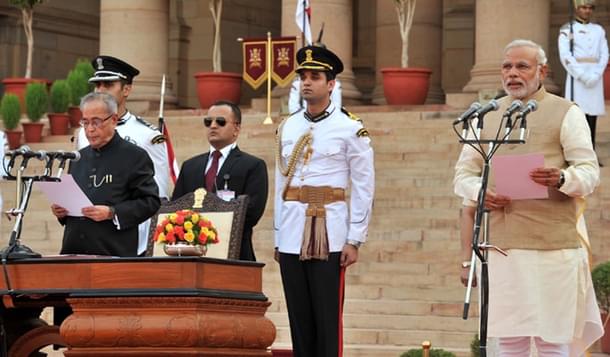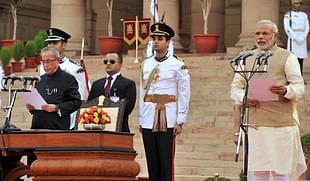Insta
Six Big Bang Reforms Modi Sarkar May Pursue Before Going To Polls In 2019
Swarajya Staff
Jun 12, 2017, 06:25 PM | Updated 06:25 PM IST
Save & read from anywhere!
Bookmark stories for easy access on any device or the Swarajya app.


The government is on a reforms spree with mergers of public sector banks topping the list in the run-up to the 2019 Lok Sabha elections. According to Nivedita Mookerji of Business Standard, six sectors, namely labour reforms and banking, energy and aviation sectors lead the big ticket reforms, along with the big push for changing the financial year cycle to January-December and simultaneous Lok Sabha polls along with elections for the states.
1. Banking
The government is eyeing key mergers during this financial year. Merger of banks, on lines of the amalgamation of the associates of State Bank of India with the parent bank, will receive top priority.
2. Energy
Reforms in the banking sector is closely followed by the oil sector, where the acquisition of HPCL, the third largest fuel retailer, by state-owned Oil and Natural Gas Corp (ONGC) for a whopping Rs 42,000 crore is on the cards.
3. Labour
Though there is no clear-cut policy on job creation the government is forging ahead with labour reforms by prodding especially the BJP-ruled states to follow in the footsteps of states like Rajasthan that relaxed the provisions of the Factories Act, the Industrial Disputes Act, the Apprentices Act and the Contract Labour Act; and Madhya Pradesh amended some 20 labour laws.
Job creation is linked to a lowering of the interest rates, a decision which the Reserve Bank of India is yet to take. Since the public sector jobs are restricted to infrastructure, the government will have to depend on private sector investment to grow in other sectors, and a cut in the rates will only make this possible.
4. Aviation
In its plan to divest its stake in Air India, the government is weighing options such as allowing foreign shares and whether to include or exclude assets in the sale.
5. Changing The Financial Year
It appears Prime Minister Narendra Modi’s pet plan to change the financial year will be pushed through despite the disruption it might cause. A change would mean the annual budget will have to be presented in October – just too close to the July roll out of the goods and services tax (GST).
6. Simultaneous Polls
All of these, along with the simultaneous holding of the Lok Sabha polls along with the state elections is expected to see the light of the day.
However, the sectors left in the cold are telecom, pharma and steel. While the government has urged the Telecom Regulatory Authority of India (TRAI) and the Telecom Commission to ensure stability in the sector, the government has been silent on their demands such as deferred payment for spectrum and a cut in the spectrum usage charge and licence fee.
The government has not offered any solution to the pharma companies hit by competition, with the strained steel sector awaiting a policy intervention.





